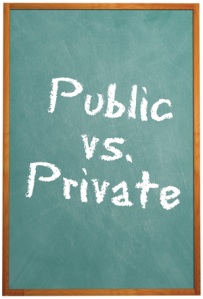Student voucher advocates promised that school vouchers would boost academic achievement for the economically disadvantaged and students of color. Yet, voucher proponents rarely cite independent, peer-reviewed, and scientific research purporting increased academic achievement from school vouchers. However, according to Ravitch (2011), studies of voucher programs in Washington, DC, Cleveland, Milwaukee, and other areas demonstrate that vouchers have negligible effects on student academic achievement. Simply put, school vouchers fail to deliver on improving student achievement significantly or consistently for targeted students who made the choice to move from public to private schools.
A review of current research on school vouchers and academic achievement suggests that truly statistically significant achievement gains for voucher students in a variety of state-based voucher experiments are limited and inconsistent across student groups Weaver (2011). Research conducted on the effect vouchers on student academic achievement offers no compelling evidence to justify initiating or expanding the use of school vouchers. As stated by Barrow and Rouse (2009), “the best research to date finds relatively small achievement gains for students offered education vouchers, most of which are not statistically different from zero.” In an overview of nationwide voucher experimentation, Belfield and Levin also concluded
Empirical evidence has not settled the issue to the satisfaction of those who have not made prior commitments to one side or the other. To this point, some of the studies have found small, positive impacts of choice, competition, and vouchers on student achievement; others have found none. No study has found any substantial difference in student achievement, for example, an impact that would potentially close the achievement gap among races (2005, p. 550).
Notably, Education Week (2011) reviewed the existing research on school vouchers and student achievement and found that much of the existing research purporting voucher success was sponsored or funded by organizations that support vouchers. It is very difficult to find rigorous scientific studies conclusively demonstrating that vouchers have a positive, empirically measurable impact on student achievement. Educational policy must be based on data and research rather than soaring ideology. In sum, U.S. studies indicate that data is at best, inconclusive on the net effects vouchers have on educational access and student achievement (Ladd, 2002). Thus, contrary to the claims of many voucher advocates, widespread implementation of school vouchers is not likely to generate substantial gains in student achievement or in the productivity of the U.S. K-12 education system (Ladd, 2003).
The last post in the domestic vouchers series on CI will examine vouchers and educational equity. See the full thread on vouchers here.
Special thanks to my collaborators on this series: Anthony LeClair, Melinda A. Lemke and Allen McMurrey.
See first post in the series here for references.

Hmm….. the following’s very existence seems to contradict the blanket statements above.
http://www.edchoice.org/research/reports/a-win-win-solution–the-empirical-evidence-on-school-vouchers.aspx
LikeLike
I am aware of these reports. NEPC has reviewed and discussed them:
Summary: A Win-Win Solution: The Empirical Evidence on How Vouchers Affect Public SchoolsAdvocates of vouchers argue that nearby public schools will be forced to compete for students, leading to improvements for voucher users and non-users alike. Critics worry that the students who use vouchers to leave public schools will have parents with higher levels of education and be less expensive to educate, and that losing these students will cause those schools to enter spirals of decline. This new report purports to gather all available empirical evidence on the question of the competitive effects of vouchers, finding a strong consensus that vouchers help public schools. But the report, based on a review of 17 studies, selectively reads the evidence in some of those studies, the majority of which were produced by voucher advocacy organizations. Moreover, the report can’t decide whether or not to acknowledge the impact of factors other than vouchers on public schools. It attempts to show that public school gains were caused by the presence of vouchers alone, but then argues that the lack of overall gains for districts with vouchers should be ignored because too many other factors are at play. In truth, existing research provides little reliable information about the competitive effects of vouchers, and this report does little to help answer the question. Suggested Cite: Lubienski, C. (2009). Review of “A Win-Win Solution: The Empirical Evidence on How Vouchers Affect Public Schools.” Boulder, CO: National Education Policy Center.Retrieved from http://nepc.colorado.edu/thinktank/review-win-win-solution
LikeLike